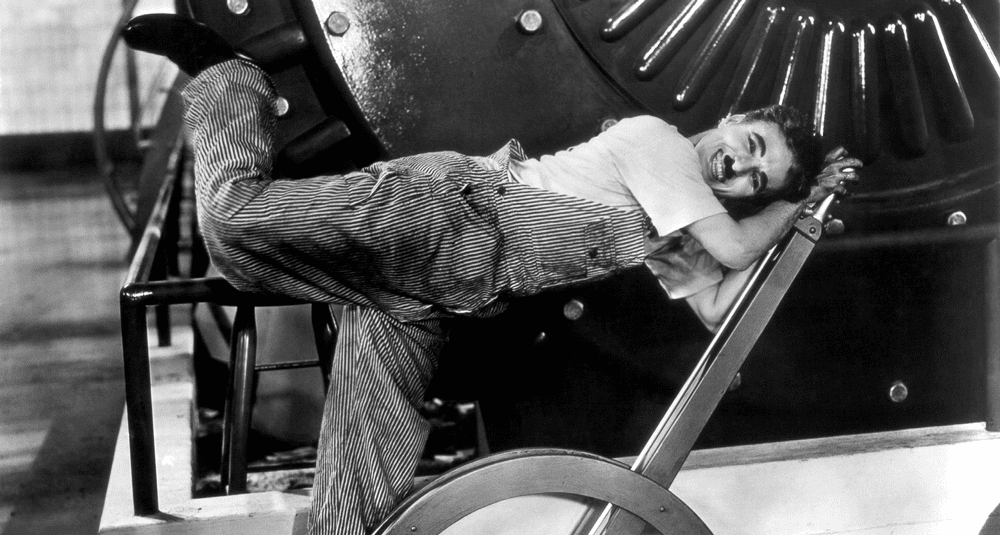When was Charlie Chaplin’s American comedy-fiction Modern Times released?
Last Updated:
Modern Times is an American comedy-drama directed by Charlie Chaplin, released in 1936. The film is particularly notable for marking the last appearance of Charlie Chaplin’s iconic character, who struggles to survive in an increasingly industrialized world.
In the 1930s, the United States experienced the Great Depression, a period of severe economic crisis resulting in massive unemployment and widespread poverty. Rapid industrialization and assembly-line work, popularized by methods such as Taylorism and Fordism, transformed the landscape of work, often to the detriment of workers’ conditions. It was against this backdrop that Chaplin conceived Modern Times, a biting satire of unbridled mechanization and its dehumanizing effects on workers.
The film follows the misadventures of Charlie Chaplin, a factory worker subjected to the frenetic pace of work on an assembly line. After suffering a nervous breakdown due to the infernal pace, he is hospitalized. On his release, he finds himself unemployed and, following a series of misunderstandings, imprisoned. Released, he meets a young orphan, played by Paulette Goddard, and together they try to survive in a ruthless society. The film is a scathing critique of assembly-line work and an indictment of unemployment and the harsh living conditions imposed by modern industrialization.
Although talking pictures were already well established by 1936, Chaplin chose to make Modern Times primarily as a silent film, with few sound effects and limited dialogue. This artistic decision underlines his attachment to silent cinema and the universality of body language. The film is also distinguished by its soundtrack, composed by Chaplin himself, which includes the song Smile, which has become a musical standard.
On its release, Modern Times was acclaimed by critics and audiences alike for its humor, social satire and Chaplin’s masterful performance. The film is often considered one of the masterpieces of world cinema, and continues to be studied for its social relevance and artistic innovation. It remains a timeless work that offers a profound reflection on the challenges of industrialization and modernity.
Modern Times, released in 1936, is a comedy-drama that skilfully combines humor and social criticism, offering an incisive look at the effects of industrialization on humanity.
entertainment
